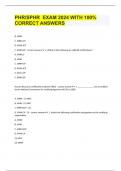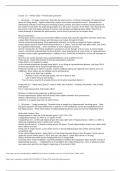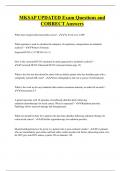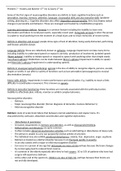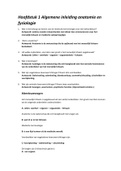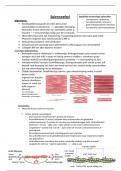Ashley Kwan
Describe and evaluate the evidence for the theory of evolution.
You need to find at least 4 pieces of evidence on each ‘side’ of the argument. With each one you
need to state what the evidence is, and then evaluate its validity and reliability. Consider the
evidence as it stands and also the source.
Evidence for evolution: comparative anatomy
Comparative anatomy is the act of comparing and studying the body structures of organisms of
different species to observe similarities and differences. Similar structures could point to those
species having a common ancestor and they have evolved with small changes. French naturalists
Georges-Louis Leclerc and Louis-Jean-Marie D’Aubenton compared the anatomies of many animals
like humans with birds to see the similarities in vertebrae forelimbs (pentadactyl limbs). The
presence of the ulna and radius, carpals, metacarpals, and phalanges indicated a common ancestor,
but all the species have adapted to their necessary functions like carrying things, walking, and flying.
Perhaps creationists could argue that similar anatomical structures could point to the role of an
intelligent designer who discovered an efficient bodily structure and this is therefore repeated with
small modifications on so many organisms.
Evidence for evolution: molecular biology
Molecular biology could also provide evidence for evolution. There are many genetic similarities that
humans have with other organisms like apes and bananas. Since all living organisms have DNA, if we
have the genetic makeup of organisms on record, we are able to compare them. For example, 99%
of human DNA sequences are the same as chimpanzees, and our cells also perform protein synthesis
and cellular respiration. Scientist David Haussler is currently trying to create a reverse evolution
machine which can revert DNA from existing organisms to prehistoric forms in an attempt to
understand our ancestors. However, it is difficult to find DNA of extinct species, consequently this
can only be proof for short-term evolution with existing organisms.
Evidence for evolution: biogeography
The third piece of evidence for evolution comes from biogeography, which is the study of
geographical distributions of organisms. They can see how geographical features like mountains,
islands, and bodies of water allowed species to evolve separately from each other. For example, the
finches on the Galapagos islands were originally one species, but as they developed on islands with
unique food sources, their beaks evolved to suit the form of nutrition. Darwin took these
observations to mean that such species had common ancestors, but their environments made them
adapt slightly differently from each other, or to the extent where they become different species. It
has also been shown that certain types of animals survive better based on geographical location: for
example, mammals don’t tend to live on islands as their build makes it challenging to travel through
large bodies of water to find islands. However, evidence provided by biogeography only determines
the evolution of animals with similar features, their activities before changing environment could
also affect how they adapt, and we don’t know where all prehistoric creatures lived as fossil records
are incomplete, therefore we cannot attribute all forms of evolution to geographical locations.
Evidence for evolution: fossil record
Fossil records can provide evidence through samples of early life forms, so we can see how much we
have adapted over periods of time by observing similar characteristics in the fossils to organisms
Describe and evaluate the evidence for the theory of evolution.
You need to find at least 4 pieces of evidence on each ‘side’ of the argument. With each one you
need to state what the evidence is, and then evaluate its validity and reliability. Consider the
evidence as it stands and also the source.
Evidence for evolution: comparative anatomy
Comparative anatomy is the act of comparing and studying the body structures of organisms of
different species to observe similarities and differences. Similar structures could point to those
species having a common ancestor and they have evolved with small changes. French naturalists
Georges-Louis Leclerc and Louis-Jean-Marie D’Aubenton compared the anatomies of many animals
like humans with birds to see the similarities in vertebrae forelimbs (pentadactyl limbs). The
presence of the ulna and radius, carpals, metacarpals, and phalanges indicated a common ancestor,
but all the species have adapted to their necessary functions like carrying things, walking, and flying.
Perhaps creationists could argue that similar anatomical structures could point to the role of an
intelligent designer who discovered an efficient bodily structure and this is therefore repeated with
small modifications on so many organisms.
Evidence for evolution: molecular biology
Molecular biology could also provide evidence for evolution. There are many genetic similarities that
humans have with other organisms like apes and bananas. Since all living organisms have DNA, if we
have the genetic makeup of organisms on record, we are able to compare them. For example, 99%
of human DNA sequences are the same as chimpanzees, and our cells also perform protein synthesis
and cellular respiration. Scientist David Haussler is currently trying to create a reverse evolution
machine which can revert DNA from existing organisms to prehistoric forms in an attempt to
understand our ancestors. However, it is difficult to find DNA of extinct species, consequently this
can only be proof for short-term evolution with existing organisms.
Evidence for evolution: biogeography
The third piece of evidence for evolution comes from biogeography, which is the study of
geographical distributions of organisms. They can see how geographical features like mountains,
islands, and bodies of water allowed species to evolve separately from each other. For example, the
finches on the Galapagos islands were originally one species, but as they developed on islands with
unique food sources, their beaks evolved to suit the form of nutrition. Darwin took these
observations to mean that such species had common ancestors, but their environments made them
adapt slightly differently from each other, or to the extent where they become different species. It
has also been shown that certain types of animals survive better based on geographical location: for
example, mammals don’t tend to live on islands as their build makes it challenging to travel through
large bodies of water to find islands. However, evidence provided by biogeography only determines
the evolution of animals with similar features, their activities before changing environment could
also affect how they adapt, and we don’t know where all prehistoric creatures lived as fossil records
are incomplete, therefore we cannot attribute all forms of evolution to geographical locations.
Evidence for evolution: fossil record
Fossil records can provide evidence through samples of early life forms, so we can see how much we
have adapted over periods of time by observing similar characteristics in the fossils to organisms

